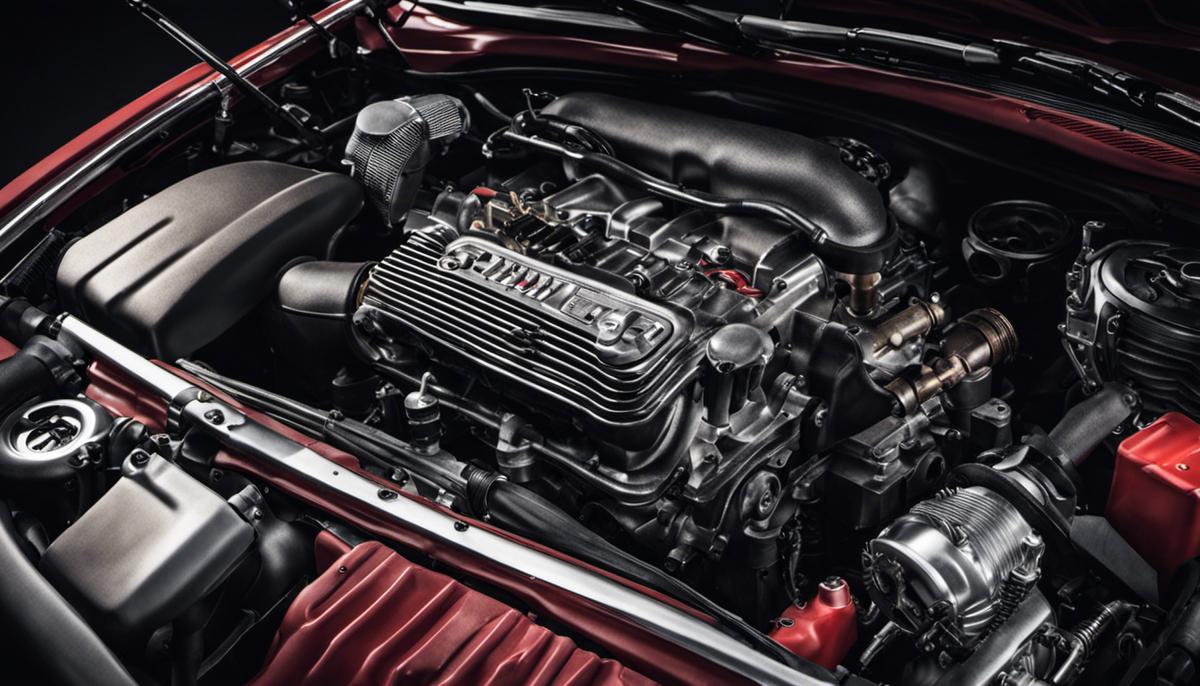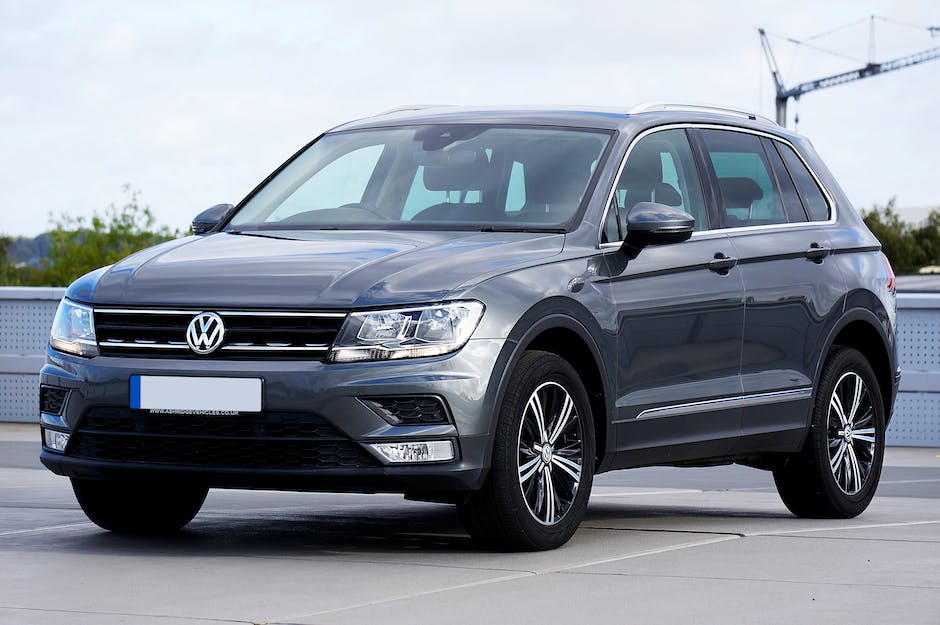Unraveling 2020 VW Tiguan Tech Problems

Last Updated on October 17, 2023 by Christ
In an increasingly evolving automotive market, the 2020 Volkswagen Tiguan stands out as a compelling compact SUV option. Distinct in style and functionality, it encompasses a host of state-of-the-art features designed to foster a seamless and secure driving experience. However, several users and industry analysts have reported concerns, shining a light on the vehicle’s potential shortcomings. This includes far-reaching engine and transmission issues, dysfunctional in-car electronics and GPS systems, and irregularities in the advanced driver-assistance systems (ADAS). This discourse delves deep into these reported pitfalls, analyzing their impact on the overall vehicle performance, driver safety, and vehicle efficiency.
Contents
Engine and Transmission Issues
Having complex electronics and advanced technology built into motor vehicles has certainly opened up a realm of new possibilities. These advancements allow for refined performance and a thrilling driving experience. However, it’s essential to remember that these advanced technologies also pose their own set of challenges. The 2020 Volkswagen Tiguan is no exception to this. This much-anticipated SUV model comes jam-packed with compelling features, but it has been facing significant technical difficulties that are damaging its engine and transmission performance.
Engine Complications
One of the foremost complications identified is the failure of the EGR (Exhaust Gas Recirculation) cooler. The EGR cooler, a crucial component designed to reduce nitrogen-oxide emissions from the engine, has shown problems in some 2020 VW Tiguan models. The potential weakness in the EGR cooler’s structure could lead to the coolant leak. This, in turn, can cause the vehicle to stall, which poses a safety risk while you’re out on the road.
Another concern with the engine is the crankshaft sensor malfunction. Reports suggest that this malfunction can cause the engine to shut off while still driving, once again raising serious safety implications. It’s important to note that an unresponsive crankshaft sensor can lead to inefficient fuel consumption and increased emission levels, severely impacting not only the engine performance but also the environmental efficiency.
Transmission Glitches
From ensuring quick and smooth gear changes to improving fuel efficiency and enhancing the driving experience, the transmission system plays a critical role in your ride. A recurring problem that has affected a considerable number of 2020 VW Tiguan models is erratic shifting patterns in its automatic transmission system.
The automatic transmission has been reported to jerk while shifting gears, and some users have reported a lurching movement while accelerating. Another reported issue is unexpected shifting into neutral. This irregular shifting is distracting and poses a risk to safety. More so, it ultimately damages the performance of the vehicle’s transmission system.
Furthermore, the failure of the start-stop technology to engage properly is another frequently reported issue. This automatic engine cut-off feature is designed to conserve fuel, but faulty operations can cause severe damages to the transmission system over time.
Addressing these Technical Difficulties
These issues illustrate the double-edged sword of technology. It is wished, and many would argue necessary, to create vehicles with increasing layers of technology integrated into them. However, when these technologies falter, they substantially influence the performance of both the engine and the transmission system.
It’s vital for vehicle manufacturers and repairers to keep abreast of these issues and be prepared to respond effectively. The same goes for the owners – recognizing these problems and immediately seeking expert advice can potentially save your engine and transmission system from severe damage.
Remember, technology and machines require consistent maintenance and rigorous monitoring to ensure their smooth operation. The sophisticated technology in the 2020 Volkswagen Tiguan is powerful and offers a remarkable driving experience, but it also requires diligent attention to deliver consistently high performance. As new age tech-enthusiasts, surely we wouldn’t want it any other way.

In-Car Electronics and GPS Failures
How GPS and Electronic Hitches Challenge the 2020 VW Tiguan’s Technological Stature?
The reputation of the 2020 Volkswagen Tiguan, once a paragon of vehicular technological advancement, encounters fresh concerns relating to GPS and electronic system glitches. Such complications jeopardize not just the model’s repute, but also catalyze concerns vis-a-vis vehicle safety and overall efficiency.
First in line of these emerging problems is the Tiguan’s GPS system troubles, an area that has seen multiple consumer complaints in recent times. Several users have reported inaccurate or inconsistent directions provided by the GPS navigation system. While the GPS system’s inability to provide real-time traffic updates on the Tiguan’s designated routes seems to attribute to this inconsistency, the root cause of this issue remains unclear. What’s certain is that in an era where precise navigation is an increasingly valued feature, these glitches pose a significant dent to the 2020 VW Tiguan’s perceived technological prowess.
The problems do not end here, though, for the Tiguan. One of the more disconcerting revelations is the anomaly within its electronic systems. This is significantly evident in the malfunctions of the keyless access and push-button start technology. While it can be a convenient feature, reports of unreliable recognition of the key fob by the vehicle bring forth inconvenience and potential safety issues, and indeed blemish the outlook of technological sophistication once associated with this model.
Adding to this, a significant fraction of Tiguan users have reported hazardously problematic issues with the adaptive cruise control features. Some have faced random disengagement of the adaptive cruise control on highways, an alarming concern given the safety implications this feature carries.
Overall, off-the-mark GPS navigation coupled with electronic hitches in keyless access, push-button start and adaptive cruise control, throw a wrench in the once shiny technological reputation of the 2020 VW Tiguan. Volkswagen must address these problematic concerns if they are to maintain the Tiguan as a competitive and reliable model in this fast-paced, increasingly tech-driven automotive market. Merely surviving in this postmodern automobile era will require VW to adopt preventive and pro-active approaches, not just in terms of design, but also in refining the reliability of technology employed across their fleet.
Good thing though, rapid strides in technological advancements are indubitably on VW’s side. Let’s hope these help the 2020 VW Tiguan get its technological mojo back on track. Because in the end, it’s the consumer who must reign supreme, particularly in an age when technology isn’t merely an add-on, but a vital part of vehicular functionality, performance and safety.

Issues with the Advanced Driver-Assistance Systems (ADAS)
Moving from engine and transmission to the tech-centric Advanced Driver-Assistance Systems (ADAS), concerns are rising regarding its reliable performance in the 2020 Volkswagen Tiguan. It’s been touted as a revolutionary solution for vehicle safety, enhancing driving comfort and helping prevent accidents. But in the case of this specific year and model, the ADAS appears to fall short of expectations.
Firstly, critical features like the Forward Collision Warning (FCW) and Automatic Emergency Braking (AEB), taught to be fail-safe shields against on-road risks, have been reported to malfunction. Aside from the unpredictable behavior causing anxiety among drivers, it’s also raising questions about the vehicle’s credibility from a tech standpoint.
Further exacerbating the situation are issues surrounding the Lane Keeping Assist (LKA) and the Blind Spot Monitoring (BSM) systems. Usually dependable for preventing side and rear collisions, irregularities have surfaced in these systems failing to alert drivers about vehicles in their blind spots or keeping the vehicle within its own lane.
Even more unsettling is the reported failure of the Parking Assist system. Rather than simplifying the parking process, the system shows inconsistencies, making parking a high-stress endeavor for drivers and further damaging the Tiguan’s tech reputation.
This flurry of glitches in the ADAS is unacceptable for any tech enthusiast expecting top-notch performance from a brand like Volkswagen. The 2020 Tiguan, seemingly teeming with advanced tech features, is ironically facing criticism for these malfunctioning systems, hence damaging its tech credibility.
But why does it matter? Because underlying these irregularities are serious safety concerns that could potentially put lives at risk. It unquestionably tarnishes the Tiguan’s image as a tech-advanced vehicle.
Moreover, the technical faults stand to strain the relationship between Volkswagen and customers, potentially pushing tech-savvy consumers to competition offering reliable and state-of-the-art technology solutions. Thus, it’s critical for Volkswagen to direct immediate attention to these glitches and provide solutions.
Beyond just corporates figuring out a way through, it rests on repairers and owners too, to embrace a proactive approach. Regular system checks, software updates, and prompt attention to any irregularities can prevent minor glitches from becoming major problems.
The secret to VW regaining its reputation lies in the same technology that’s currently causing its woes. A thorough system overhaul and using next-generation technology, with the potential to eliminate existing glitches, could be the game-changer. Embracing cutting-edge artificial intelligence and machine learning technology can pave the way to a more reliable, safer, and superior driving experience.
In conclusion, VW’s 2020 Tiguan’s ADAS irregularities cannot be dismissed as growing pains of pioneering tech. They deserve immediate attention and resolution to prevent any negative impact on safety, driver experience, and the Volkswagen brand’s standing in the highly competitive automotive industry. After all, technology, when implemented smartly and efficiently, should be an enabler – not a detractor – to create an enjoyable and trustworthy user experience.

After an extensive analysis of the 2020 VW Tiguan’s reported issues, it becomes apparent that while the compact SUV offers an attractive design and commendable road performance on the surface, underlying issues concerning engine and transmission concerns, in-car electronics failings, and advanced driver-assistance systems irregularities pose decision-making complexities for potential buyers. Proactively acknowledging these concerns, understanding the severity, and exploring potential solutions is essential for potential owners and VW Tiguan enthusiasts alike. The aim is not to undervalue the car’s potential, but to facilitate an informed perception of it in terms of securing an unmatched driving experience and safety considerations.
Leave a Reply